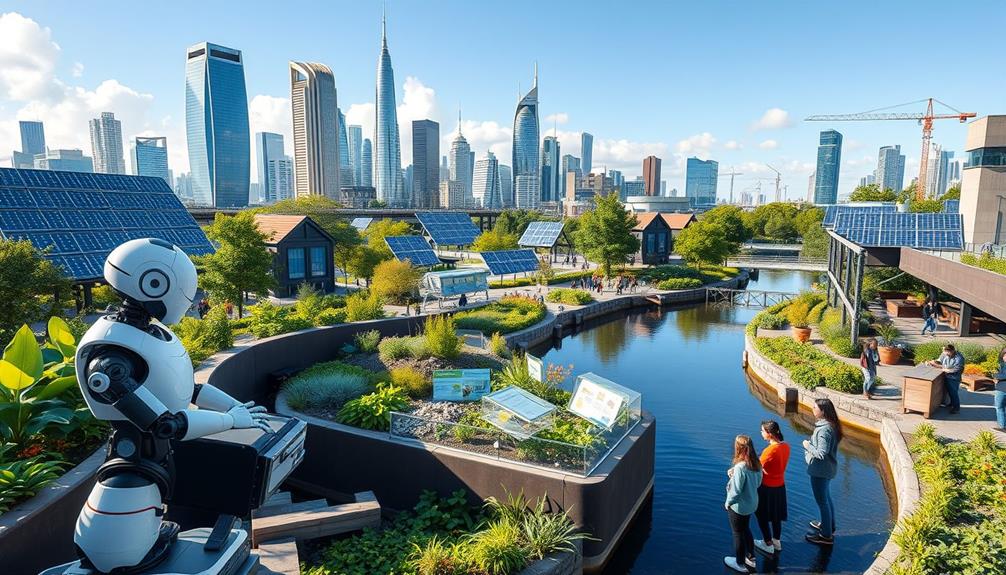We, as users and consumers, have been captivated by the remarkable advancements in artificial intelligence that have transformed our smartphones into powerful photography tools.
However, the integration of AI in photography has sparked a heated debate about the boundaries and limitations of this technology.
In this article, we delve into the controversy surrounding Google Pixel’s AI-powered photo tools, exploring the ethical implications and impact on our perception of reality.
Join us as we navigate through the complex terrain of AI manipulation and its consequences.

Key Takeaways
- Google’s latest smartphones, Pixel 8 and Pixel 8 Pro, use AI to alter people’s expressions in photographs.
- The AI manipulation features have been described as ‘icky’ and ‘creepy’ and raise concerns about trust in online content.
- Google’s AI-powered photo tools, such as Magic Editor, can add or remove elements from photos using deep learning.
- The use of AI in photography raises ethical considerations and questions about the boundaries and limitations of technology.
The AI-Powered Photo Tools of Google Pixel
We are impressed by the range of AI-powered photo tools offered by Google Pixel’s latest smartphones, the Pixel 8 and Pixel 8 Pro. These devices utilize AI to enhance and manipulate photographs, providing users with advanced editing capabilities.
With features like the Magic Editor, which allows for erasing, moving, and resizing elements in a photo, users have the power to create stunning images with ease.
However, concerns have been raised about the potential for AI manipulation to erode trust in online content. Critics argue that AI can be used to create a ‘fake world’ where reality becomes distorted.
It’s important for users to consider the ethical implications of AI manipulation and carefully evaluate the trustworthiness of the images they encounter.

As AI continues to advance, the conversation surrounding AI-powered photo editing and its impact on trust will undoubtedly persist.
Concerns and Criticisms Surrounding AI Manipulation
Raising concerns and drawing criticisms, AI manipulation in Google Pixel’s photo tools has sparked controversy.
One of the main concerns revolves around the implications of AI manipulation on social media platforms. With the ability to alter people’s expressions and erase unwanted elements, there’s a worry that AI could contribute to the creation of a ‘fake world’ on these platforms.
The role of AI in reshaping the concept of authenticity in photography is also being questioned. Some argue that AI manipulation blurs the line between reality and fiction, thus challenging the traditional notion of photography as a medium for capturing truth.

As AI continues to advance, it’s crucial to consider the ethical implications and impact on our perception of reality that these manipulations may have.
AI in Smartphones and Its Impact on Capturing Reality
With the increasing prevalence of AI-powered photo tools in smartphones, the impact on capturing reality is a topic that demands careful consideration and exploration. AI’s role in enhancing smartphone photography has revolutionized the way we capture and edit images. However, it also raises concerns about the authenticity and manipulation of photographs.
Here are three key points to consider:
- AI’s impact on photo editing and manipulation: AI-powered photo tools like Google’s Magic Editor have the ability to add or remove elements from photographs, blurring the line between what’s real and what’s artificially created.
- The ethical implications: The use of AI in photography challenges our perception of reality and raises questions about the boundaries of technology. It’s important to carefully consider the ethical implications of AI manipulation and how it may impact our trust in visual content.
- Balancing enhancement and authenticity: While AI enhances the quality of smartphone photography by filling in missing information and improving photo quality, it’s crucial to strike a balance between enhancement and maintaining the authenticity of the captured moment.
As AI continues to advance, it’s imperative to navigate the fine line between enhancing smartphone photography and preserving the integrity of reality.

Ethical Considerations and User Perception of AI Manipulation
The ethical considerations and user perception of AI manipulation are important factors to consider when discussing the impact of Google Pixel’s AI-powered photo tools. AI manipulation poses implications for online content trust and raises concerns, especially in professional contexts. Tech commentators and reviewers have expressed unease and described Google’s AI technology as ‘icky’ and ‘creepy’.
Professional photographers and experts warn about the dangers of AI manipulation, as it can create a ‘fake world’. The use of AI in smartphones to alter expressions, erase unwanted elements, and fill in gaps in photos has sparked debate about what’s and what isn’t reality. Google adds metadata to its photos to flag when AI is used, but the nuanced debate requires careful consideration on a feature-by-feature basis. However, Google remains confident that users will embrace the AI features of its new phones.
Ultimately, user perception of reality is influenced by the limitations of our own eyes and the brain’s ability to reconstruct information.
The Future of AI in Photography
As we look ahead, the future of AI in photography holds great promise and continues to shape the boundaries and limitations of technology. Advancements in AI photography are transforming the way we capture and enhance images, with significant implications for professional photographers.

Here are three key aspects to consider:
- Enhanced Efficiency: AI-powered photo tools streamline the editing process, allowing photographers to work more efficiently. Tasks like background removal, retouching, and color correction can be automated, saving time and effort.
- Creative Possibilities: AI opens up new avenues for artistic expression. Advanced algorithms can generate unique filters, suggest composition improvements, and even create entirely new visual styles. This empowers photographers to explore innovative techniques and push the boundaries of their creativity.
- Ethical Challenges: The increasing reliance on AI in photography raises ethical concerns. With AI’s ability to manipulate images, there’s a risk of misrepresentation and the creation of a ‘fake world.’ Professional photographers must navigate these challenges to maintain trust and uphold ethical standards in their work.
Frequently Asked Questions
How Does Google Pixel’s Ai-Powered Photo Tools Compare to Other Smartphones?
Comparing AI-powered photo tools on different smartphones, Google Pixel’s AI features stand out. The phones use machine learning to alter expressions and offer Magic Editor for removing unwanted elements. However, concerns about AI manipulation’s impact on smartphone photography persist.
Can Google Pixel’s AI Alter Expressions in Real-Time or Only in Post-Processing?
Yes, Google Pixel’s AI can alter expressions in real-time. However, this raises ethical implications regarding the authenticity of the captured moment. It’s important to consider the impact of such manipulation on our perception of reality.
Are There Any Privacy Concerns With Google Pixel’s Ai-Powered Photo Tools?
There are privacy concerns with Google Pixel’s AI-powered photo tools. The implications of AI in photography raise questions about the boundaries of technology and the ethical considerations surrounding data privacy.

How Do Professional Photographers Feel About the Use of AI Manipulation in Smartphone Photography?
Professional photographers have varied opinions on the use of AI manipulation in smartphone photography. Some see it as a tool to enhance creativity and productivity, while others worry about its impact on the industry and the authenticity of their work.
What Are Some Potential Future Developments or Advancements in Ai-Powered Photo Tools for Smartphones?
Future possibilities in AI advancements for smartphone photo tools include improved image recognition, automatic editing based on user preferences, and real-time scene analysis. These advancements will enhance the photographic experience and provide users with more creative control.
Conclusion
In conclusion, the integration of AI in Google Pixel’s photo tools has sparked a lively debate surrounding its ethical implications and impact on reality.
While some may view these features as innovative and transformative, others express concerns about the potential manipulation and distortion of content.

As we navigate the ever-evolving landscape of artificial intelligence, it’s crucial to critically examine the boundaries and limitations of this technology to ensure a balanced and authentic representation of the world around us.










